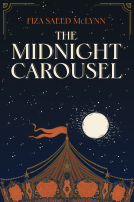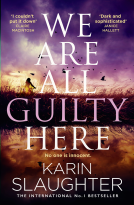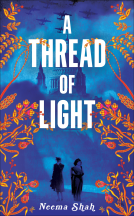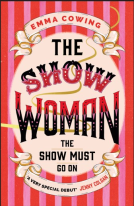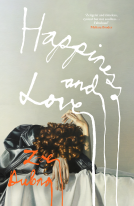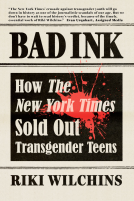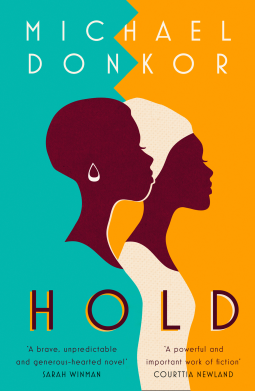
Hold
An Observer New Face of Fiction 2018
by Michael Donkor
This title was previously available on NetGalley and is now archived.
Send NetGalley books directly to your Kindle or Kindle app
1
To read on a Kindle or Kindle app, please add kindle@netgalley.com as an approved email address to receive files in your Amazon account. Click here for step-by-step instructions.
2
Also find your Kindle email address within your Amazon account, and enter it here.
Pub Date 12 Jul 2018 | Archive Date 25 Mar 2020
HarperCollins UK, 4th Estate | Fourth Estate
Description
Moving between Ghana and London, Hold is an intimate coming-of-age novel. It’s a story of friendship and family, shame and forgiveness; of learning what we should cling to, and when we need to let go.
‘An unpredictable and generous-hearted novel’ Sarah Winman
‘A powerful and important work of fiction’ Courttia Newland
Two girls, two different worlds, one unexpected friendship.
Belinda is everything a good Ghanaian housegirl should be. Diligent and uncomplaining, she knows exactly how to follow the rules.
Amma has never been a great one for rule-keeping. And when her parents meet Belinda on a visit from England they suspect she might be just the shining example their wayward teenager daughter needs.
So Belinda must leave behind her old life and travel to London to befriend a girl who shows no desire for her company. But in this bewildering city, surprises are waiting down every bus route, and when the cracks in Amma’s defences open up, the secrets they have both been holding onto are brought into the light.
‘Donkor’s principal achievement is the dignity and generosity of spirit with which he imbues a central character from a largely invisible seam of African society’ Guardian
‘Donkor’s debut novel concerns itself with those who don’t traditionally get much of a look-in when it comes to fiction: two Ghanaian house girls… A warm and intelligent story, offering full-bodied characters and a fortifying examination of courage’ Mail on Sunday
Available Editions
| EDITION | Ebook |
| ISBN | 9780008280369 |
| PRICE | £3.49 (GBP) |
| PAGES | 320 |
Featured Reviews
 Moray L, Librarian
Moray L, Librarian
This is quite a debut! Michael Donkor covers a lot of ground in this immersive tale of Belinda the Ghanaian housegirl who moves to London to be a calming influence on Amma the daughter of an expatriate family whose lack of connection to their culture and thoroughly western mindset is driving her parents to distraction. Donkor addresses the problems adapting to a culture as a stranger, whether it is an entirely new world as London is to Belinda or something born to but never fundanentally experienced as Ghana is to Amma.
These two main characters play off eachother perfectly, bringing their different strengths and weaknesses to light; Amma's privilege and self-centredness, Belinda's conservatism and meekness. Both have huge strength and heart and each allows the other to come to terms with their own struggles. But Donkor also tackles the station of Ghanaian women, British racism, homophobia with tact and skill. Most impressively he has written a novel fully peopled with sensitively-rendered, whole, layered women brimming with vices and voices. They live on the page in the penetrating descriptions of Ghana and Britain which are rendered both strange and familiar by gazes of the characters.
Funny, insightful, immersive, Hold tugs on all of the emotions and has more than enough intellect to balance out all that heart
Hold is a moving, funny, and sad novel about friendship, shame, forgiveness, and growing up, that is set between Ghana and London. The protagonist is Belinda, a housegirl who moved from her village to Kumasi when the chance came. She works alongside Mary, a spirited eleven-year-old who became the sister Belinda never had, until Belinda is summoned to London to try and bring Amma out of her shell. Amma is a straight-A student who lives in south London with her Ghanian parents, but recently she has started to seem different to them, moody and uncommunicative. They hope that Belinda will be a good example on Amma, but Amma doesn’t want to be friends at first. And when they do start to get along, their own secrets might pull them apart again.
Belinda’s perspective is distinctive and holds the novel together as she discovers new ways to think and thinks back on the past. Donkor combines this with smaller parts from Amma’s perspective, which shows the differences in their lives and points of view and also how their friendship grows slowly. The way Donkor writes their friendship—how it is forced upon them, but also becomes more natural, something of a give and take—is crucial to the novel, which is full of different comparisons.
This is a multi-faceted novel with engaging and memorable characters, and vivid locations including a recognisably local south London centred around Brixton, Herne Hill, and Streatham. It is a story about growing up and coming of age across different cultures and positions in society, but also in relation to shame, sexuality, and grief. Hold is an exciting debut that combines gripping characters with vivid description to create a coming-of-age story with fresh perspectives.
 Paul F, Reviewer
Paul F, Reviewer
"The two of them – Amma, Mary – in their own, very different ways , in their different times and places, had made Belinda think and laugh so hard."
Michael Donkor's excellent debut novel Hold is set in Ghana and South-East London. It opens in December 2002 with 17 year-old Belinda grieving at a traditional funeral in Ghana, but then travels back 9 months to find Belinda working, for the previous 6 months, as a house-girl in Daban, Kumsai, for a wealthy couple, who she knows as Aunty and Uncle, albeit not actual relations.
She was sent away from her home village by her mother, who she no longer has any contact with:
"That evening, as Mother had given out her clear instructions about never turning back, perhaps it had been hard to speak so thunderously when, really, under all of that pretending, Mother’s feelings were more unsure and broken."
Although otherwise she seems happy and secure in Daban, and becomes like an elder sister to the other house-girl, 11 year-old Mary. But then a relative of Aunty's arrives from UK, 'Nana', wife of a successful ex-pat businessman Doctor Otuo, and tells Belinda of her own 17 year old daughter, Amma.
"'She is very beautiful girl and the book-smartest you will ever find in the UK. Ewurade! Collecting only gold stars and speaking of all these clever ideas I haven’t the foggiest. They even put her in South London Gazette once because of her brains!’ Nana shook her head in disbelief. ‘And when she has a break from doing her homeworks or doing paintings, we shop together in H& M and have nice chats. And she makes her father very proud so he doesn’t even mind that he lacks a son and he never moans of how dear the private school fees are for his bank balance.’
Belinda took the napkin and folded it into quarters. ‘Daznice,’she said. ‘Sounds very nice for you.’‘
It used to be nice.’ Nana sighed, put down her Gulder. ‘Past. We have to use past tense because is now lost and gone, you get me? As if in the blinking of a cloud of some smoke she has just become possessed. Not talking. Grumpy. Using just one word, two words for communication. As if she is carrying all of the world on her shoulders."
Nana and Aunty have decided, before consulting her, on a plan for Belinda - to send her to the UK to live with the Otuo's, not as a housegirl but simply to try and befriend Amma. Belinda's incentive is that the Otuo's will also send money to her mother, since the latter's earnings from her bar job back in the village are inadequate.
But when she has to break the news to Mary, the conversation doesn't go well, Mary feeling that she is being abandoned:
"‘You seem to do a very good job of not speaking on the tro tro, me boa?’
‘Not really.’
‘Wo se sɛn?’
‘In my head I had very long talk with you. Very long.’
‘Sa?’ Belinda scooped the contents of the asanka into the frying pan and took a big step back while the oil hissed."
The Otuo's live in a vividly drawn South-East London, which proves rather a disappointment to Belinda. Indeed Donkor cleverly hasn't set this up as a contrast between rich London and poor Ghana, if anything the opposite - even their house is rather small compared to Aunty and Uncle's compound:
"Didn’t Nana and Doctor Otuo feel boxed in or too small here? Why did the cars pass right in front of the house – where was the perimeter wall? The swimming pool?
...
The Otuos’ Narbonne Avenue was smart, marked by pointy black lampposts like those outside the Huxtables’ on The Cosby Show repeats Aunty loved. Each morning from her new window, Belinda saw men swinging briefcases and women flicking scarves called pashminas.
But late the following Saturday afternoon, as Nana, Belinda and Amma walked from the house in matching wrappers, a few minutes away on Railton Road, they were somewhere unrecognisable. Clusters of tired buildings were interrupted by a betting shop, an ‘off licence’, the Jamaican Take Away, ‘Chick ‘n’Grillz’. And none of them sold what they promised. Fronts were smashed or boarded up. Even the earlier rain seemed to have collected more dangerously here, lapping at Nana’s peep-toes. A gust came at Belinda with a rumour of nearby bins, beer, and spoiled fruit."
The reader soon realises that Amma's situation is more than just teenage angst:
"It had been ages since the Saturday when she had put away all the important things from the Brunswick Manor Gifted and Talented Residential into the trinket box. On that day, it had rained appropriately and persistently . Amma had waited for weeks and weeks to hear anything, anything at all."
Amma attends an outstanding and prestigious private school SGHS, which one rather suspects draws on St Paul's Girl School (SPGS) where the author himself teaches, albeit he has relocated the school from Hammersmith to Streatham and imposed a school uniform.
"Donkor’s day job as an English teacher also helped him access the female teenage mindset. His current post is at St Paul’s girls’ school in west London. “It’s funny,” he says, “because the girls at school ask me whether they have inspired some of my observations about teenage girls… and yeah, I’m watchful of the ways young people interact. And how direct they are.” (from the Guardian)
And Donkor does indeed skew the speech patterns and behaviour of Amma and her friends:
Yesterday had been AS Results Day: Amma and all the other prefects had been garlanded with As. Clutching certificates they did a show of being surprised, relieved.
Going home after the results was not an option. Party! Max from Alleyn’s! With his fat house near Dulwich Village? Off they went.
Max’s dad laid boxes of wine and buckets of beers on the long dining table before high-fiving his son on his way out. As soon as the door shut, before anyone could protest, Amma swiped the Beaujolais. She ran to the basement, slipped off her Converse and stationed herself in the corner of their library to hide. Until the Addie Lees and faggy final kisses at 5 or 6 a.m., Max’s front room would sweatily ripple with skaters in children’s jewellery, students from Camberwell doing Art Foundations, adjusting dungarees and wearing tiny hats, and the chavvier girls in jeans revealing a tasty inch of arse crack; the Stella-ed up young Tories, thick of lip, expansive of forehead and primed for showy debate. On the edges of the dancing and grinding, over fuzzy Drum’n’Bass, conversation would offer nothing of importance or comfort.
[...]
When have you been most scared?’ Amma asked Helena.
‘Funny question.’
‘Try. Go on.’
‘What do you need to know for?’
‘Why so reluctant, ma chérie?’
Helena’s pinking eyes flashed. ‘When I thought I might drown. But you know about that. So you’re probably after something –’
‘Doesn’t matter. Keep going.’
‘So, OK, I was about eight or something. Mum was going out with that creepy cellist then.’‘Eugh, yeah. With the teeth and the fingernails.’‘The three of us were in Cornwall. He’d never been and Mum was, like, too happs about showing him everything and blah blah."
He even throws in some self-satire of an A-level English teacher at the school:
"‘So, folks, why might Faulks have used this narrative technique in the extract we’re analysing? Can we all remember what we mean by the term “narrative technique”? Who can remember?’
To emphasise ideas in desperate need of razzmatazz or to lend important questions greater jeopardy, the little man at the front of the class stretched his hands out, up, to the side. Mr Stevens – although ‘Titch’ was more informative – sat on the edge of his table, kicking his legs like a child on a swing. Each of the fifteen girls under his tutelage were destined for As and Russell Group universities regardless of his efforts. The prospect, the certainty of success, dispirited Amma.
....
Getting an A for an essay was pleasingly straightforward. There were rules to be followed, well-selected places in paragraphs where untaught flair was required. Hiding her feelings in order to turn into the kind of daughter Nana Otuo wanted presented a greater challenge."
SHGS contrasts to the community school that Belinda attends, at the Otuo's insistence, to study a GCSE in English literature.
A rather lazy comparison would be that Donkor does for the multi-ethnic communities of SE London what Zadie Smith has done for the North-West. The book itself makes a nod in that direction, with Belinda's book shelves soon containing:
"Penguin copies of Macbeth, Romeo and Juliet, The Tempest and Lord of the Flies for Abacus. A Lambeth Borough Library Card that Mrs Al-Kawthari had helped her apply for. Things Fall Apart and White Teeth for fun."
And Macbeth is a key reference, which she studies at the community school:
"Belinda remembered what Macbeth says when he hears about his Lady’s death: how life is only a walking shadow. She had liked the line very much. Mrs Al-Kawthari had put it up on the OHP and asked for volunteers to talk about it. Robert had said it was about God and the riches awaiting us in Heaven. Belinda had not been afraid to only say she found the sentence complicated, beautiful and true."
with Belinda's excessive cleaning, to the Otuo's disapproval given that she is not there to work, reminiscent of Lady Macbeth.
"She was pleased at the muck in its bristles. She got to her feet and turned the hot tap on. With ungloved hands, under the stream of scalding water, she plucked the dirt from those spines until they were as white as she could manage."
The reason for this is buried in her past but gradually becomes clear to the reader, as she thinks back to the day she left her mother.
As the girls gradually open up to each other, Belinda's initial reaction to Amma's secret is far from accepting and Amma fails initially to see why Belinda is so traumatised. But after the tragedy leading to the funeral than opens the book forces Belinda back to Ghana, the two girls have more time to think on the other's situation and their own.
This isn't a novel offering easy closure and all the better for that. If there is a redemptive message from the book it is that ultimately one will be able to cope even with what seem like impossible burdens. Amma slips into a Katherine Mansfield book she lends Belinda for the flight the poem Michiko Dead by Jack Gilbert, from which the novel takes its title:
"He manages like somebody carrying a box
that is too heavy, first with his arms
underneath. When their strength gives out,
he moves the hands forward, hooking them
on the corners, pulling the weight against
his chest. He moves his thumbs slightly
when the fingers begin to tire, and it makes
different muscles take over.
Afterward, he carries it on his shoulder, until the blood
drains out of the arm that is stretched up
to steady the box and the arm goes numb. But now
the man can hold underneath again, so that
he can go on without ever putting the box down."
Overall, a beautifully written and powerful novel - recommended.
 Rebekah L, Reviewer
Rebekah L, Reviewer
Belinda is a teenager, working as a housekeeper for Aunty and Uncle in Daban, Kumasi, Ghana. Her Mother needed her to find her own way in the world, away from home, and when this rich pair, not actually related, could take her on, it couldn't have seemed more perfect.
No one told Belinda that they would be picking up a younger girl, Mary, on the way and that she would have to help train Mary to keep the large house with her. Not only was she saying goodbye to her mother forever, she was also taking on a child as well as a household.
Then Aunty and Uncle’s friends from London come to stay. They are so impressed with Belinda that they ask her to come to London to try and bring some Ghanaian magic into their daughter’s life.
Amma is unhappy and disrespectful. Despite being a model student, Amma’s parents can no longer control or understand her and they need help. They think Belinda can help them.
So now, suddenly, when Belinda has lived with the small curve of Mary in her bed, Mary’s defiant laughter in her ears, her life in her heart, Belinda is called to go away to London and fix another child the same age as herself.
We have chapters from both Belinda and Amma’s perspectives. We live the second generation immigrant experience of Amma and we see London and its people through Belinda’s eyes. Her only real connection to home are telephone calls with Mary who moans about her work and offers surprisingly pertinent advice. Mary consistently grasps at all she can get from life, making her as much an inspiration for Belinda as Belinda is for her.
The novel opens with a funeral leaving death hanging over the narrative, the potential of loss a permanent threat.
This is a very beautiful novel that makes the lives of two young girls, on the cusp of adulthood, into something far richer than a straightforward coming of age tale. Generational battles, cultural clashes, moral and social judgement and confusion all rear their heads across the carefully drawn geographies of South London and Daban. And underneath it all beats a message of kindness: kindness to others, yes, but also kindness to the self. There is an emotional depth to the novel that side steps sentiment with carefully unresolved plot lines and strong characters prepared to go back before they can go forward. I thoroughly enjoyed Hold. It asks more questions than it answers, leaving the reader thinking, questioning others and themselves. I hope Hold gains the notoriety it deserves.
 Penny B, Reviewer
Penny B, Reviewer
This book is officially my best book of 2018. So far. It manages to explore experiences that are completely unknown to me alongside others that are familiar. Primarily it is a book about relationships. Different types of friendship, relationships of obligation, romantic relationships, family relationships. It looks at how lines can blur, how secrets and shame impact on relationships, and how new opportunities can change our place in our own world. I found it utterly fascinating, and I loved the complexity of the characters, particularly Belinda, the central character. I found her relationships as a house girl and the insight into Ghanaian culture so interesting and loved that those issues were combined with the aspects of life we would expect in a book about young women.
 Safiya W, Librarian
Safiya W, Librarian
I really enjoyed reading this book. It’s not earth-shattering and there really aren’t any tense highs (or lows), but to be honest, I’m starting to enjoy this kind of book a lot more than the other kind.
I enjoyed the technically similar, but conflicting characters of Belinda and Amma; two young women of a similar age, from (in some ways) the same place with completely different experiences, thoughts and ways of moving through life. I found the development of their friendship and the way they interacted (and initially danced around each other) quite realistic - no doubt a result of Donkor’s experiences as a teacher.
The main complaint I think I have is that I found the writing quite ‘crowded’, for want of a better word, like a lot more was being described as happening, than actually was. At times it felt busier, when really just a short sentence would have sufficed to describe a situation, conversation or movement. I was quite often thrown out of the story trying to simplify what exactly was happening at certain moments.
I was kind of disappointed by what felt like a non-committal ending, which I think gave the characters other than Belinda a disservice- particularly Amma. But for the most part, It was just nice to read a story of two young, black girls (and their family) predominantly from a U.K. (I.e not American) perspective, and that wasn’t explicitly about ‘The Black Experience’, suggesting that it is always only about ‘struggle’ or a singular, fixed thing.
 Book B, Reviewer
Book B, Reviewer
A very interesting yet busy novel. One with an interesting premise, as I love experiencing my own country through foreign eyes, and particularly through the yes of young children. How would a young girl from rural Ghana deal with coming to London. Even people from the North of England sometimes find it overwhelming (or is that just me) so my interest was peaked early on. Add this to a plot of a coming of age story and there is a lot to delve into.
A great book for a book club - issues of race, identity and more fight with each other on the pages. Realistically sounding language and conversations add further authenticity to the plot. It did jar at times though and spoilt the rhythm of my reading - there is a helpful guide however so I would advise you read this first. Having said that, the dialogue in London also suffered for me.
I also found the writing itself unravelled some of the goodness I’ve mentioned though as certain bits of the book, sections of one event for example, seemed to drag and take away my interest for a while. I found I learned more about Belinda and I was left wanting to know more about Amma.
Having said that, this really is a novel to sink your teeth into, take time with and you will reap the rewards. Fascinating insight into a new culture and perhaps your own through fresh eyes. The girl’s friendship goes through some heartbreaking and heartwarming changes and I loved walking beside them finding out more about two remarkable girls with their unique and challenging mix of cultures, problems, growing up issues and more.
An insightful read about two very distinct cultures - Ghanian and British, wrapped in a story of so much more with characters who complement each other so well.
 Dave W, Reviewer
Dave W, Reviewer
A wonderful story about Belinda a girl brought up in Ghana in a troubled environment but then becomes a house girl in Duban also in Ghana where she is joined by a younger girl Mary who she has to train up. Mary is like the sister she never had and being servants they have to share a bed which is strange to both when they first meet. However after six months Belinda gets sent to London in England to help with Amma a teenager who Is coming off age and trying to figure out who she is and how her life should be. London is a big shock to the system for Belinda but she takes, actually I better let you read the book before I give anything more away.
This is defiantly a five star book and one that is hard if not impossible to put down, there are a number of twist and surprise that you won't see coming which is so true to life. I enjoyed the way Michael shows the difference of the culture with out taking anything away or distracting from the plot. I loved this book and hope you will as well.
I have been given a free copy of this book from NetGalley in return for a honest review.
 Reviewer 203820
Reviewer 203820
Belinda knows her place in the world, when her father cannot pay for her anymore, her mother sends her away to work in the household of people she calls Aunt and Uncle in accordance with Ghanaian customs. She is not the only maid there, also 11-year-old Mary works for them and quickly becomes something like a sister Belinda never had. When Belinda is sent to England to take care of Amma, a girl her own age, the two have to part which isn’t easy for either of them. Yet, they manage to stay in contact over the thousands of kilometres that now separate them. Mary wants to know everything about Belinda’s posh life in London, but the older sister cannot tell everything that she experiences in England. Her role is different now which is hard to get used to and people behave in a different way. She misses her home town, but also sees the chance that she is given since she can go back to school and study. When a tragic incident calls her back to Africa, Belinda realises that only a couple of months were enough to change her completely.
Michael Donkor was born in England to a Ghanaian household and trained as an English teacher and completed a Master’s in Creative Writing. He was selected as a “New Face in Fiction” by The Observer in January 2018. “Hold” is his debut novel in which also autobiographical elements can be found even though his protagonist is female and he has lived all his life in the UK.
What I liked about the novel were the different perspectives on life that you get and the difficulties that living between different cultures can mean for you personally but also for the people around you. First of all, I hardly know anything about Ghana so the beginning of the novel when we meet Mary and Belinda, young girls who work full time as maids, gives a short glance at what life in other parts of the world might be. They were not treated especially bad, quite the contrary, but the fact that the lack of money in their family leads to giving up education is something which is far away from our world in Europe.
Most interesting also Belinda’s arrival in London and her awareness of being different. She has brown skin, but this is different from the Asian brown of the Indians or the skin of the girls from Jamaica. It is those slight differences that are of course seen by the members of those groups at the margin but often neglected by the majority society. Even though she shares the same cultural background with Amma, the two girls could hardly be more distinct. The most obvious is their sexual orientation where Belinda sticks to a romantic understanding of love and where Amma has her coming-out as homosexual. Belinda can easily adapt to a lot of things, but this clearly transgresses a line that she will not cross. The girls’ friendship is nothing that comes easy for both of them, but it splendid how Donkor developed it throughout the novel.
Without a doubt, Michael Donkor is a great new voice among the British writers who themselves have made the experience of belonging - but not completely, of being trapped between cultures and having to find their identity while growing up.
 Sarah G, Reviewer
Sarah G, Reviewer
Funny, moving and sad, Michael's novel is a beautiful coming of age story. My only disappointment was the lack of closure with so many of the characters.
 sara m, Reviewer
sara m, Reviewer
A really interesting and well told story with wonderful writing. I found myself thinking about it when I was reading it and raced pack to pick it up. Donkor created a powerful story.
A beautiful story set in London and Ghana about growing up and dealing with differences in culture. Beautiful descriptions and engaging characters.
A coming of age story, set between Ghana and London, this is the story of Belinda, a housegirl, who moves to London to help the daughter of her employers friends. Amma (the friends daughter) has become withdrawn and is struggling with something in her life - not her studies though, she's a straight A student. She won't talk to her parents about it, and to begin with, it doesn't look as though she'll talk to Belinda either. Their friendship builds over a period of weeks and months. In this time, Belinda goes back to school in order to gain some qualifications. She seems to feel guilty of having left her fellow housegirl, who she refers to as sister (even though the 12 year old Mary is not her sister by blood, they have bonded over being in the same circumstances of separation from their families at young ages).
This novel explores African attitudes towards sexuality, family and responsibility. It's funny at times, but also incredibly moving. I really enjoyed it. We can see the contrast between life in a Ghanaian city and village, and the difference again between those places and London. A fascinating novel.
many thanks to NetGalley and the publisher for my copy of this wonderful book.
Readers who liked this book also liked:
Riki Wilchins, Clare Howell
Biographies & Memoirs, LGBTQIA, Parenting & Families



